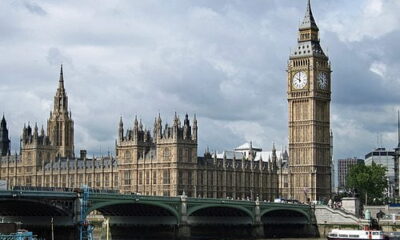

Environment
Campaigners Collaborate to End Amazon Mega-Dam Plans
The Brazilian Government want to build a minimum of five mega-dams on the Tapajos River where 12,000 Munduruku Indigenous Peoples live. The river, in the heart of the Amazon rainforest, is also home to a wide variety of rare and endangered species of animals, birds and plants. The Munduruku Indigenous Peoples and Greenpeace have come together to stop the plans from going ahead.
If built, the mega-dams would flood an area the size of greater London, Paris and Amsterdam combined. The government’s own environmental impact study uncovered 8 new species of mammal living in the area under threat, including a new monkey and new 5 species of bat.
The Munduruku have been fighting for the Brazilian government to formally recognise their land for many years. A report in April by FUNAI (the Brazilian Indigenous Rights Agency) recognised this area as Munduruku traditional land, which is a first step, but the process of official recognition is painfully slow, and the dam project could flood the Tapajos before it is completed. Now the Munduruku are joined by thousands of people from around the world who are calling for the Tapajós to be protected and demanding that global companies refuse to play any part in the controversial and destructive dams.
Greenpeace have sent activists to the Munduruku villages to assist in physically demarcating their land and installing solar power systems, as well as campaigning internationally in support of their cause.
Juarez, the Chief (Cacique) of Munduruku Sawré Muybu Indigenous land, said: “This an important battle not just for the Munduruku people, but for everyone around the world since we are talking about one of the biggest forests that still exist in the planet.”
The largest of the proposed mega-dams is the Sao Luiz do Tapajós. If built, it would be the sixth largest hydroelectric dam in the world, with a reservoir the size of New York City. The dam would be 7.6km wide and would flood hundreds of square kilometres of ancient rainforest.
Greenpeace Brazil Amazon Project Leader Tica Minami said: “We are standing with the Munduruku to help ensure their rights are upheld and the dam licensing is cancelled once and for all. Not only would this dam change the Munduruku way of life forever, it would also have massive impacts on rare plants and animals that aren’t found anywhere else.”


 Environment12 months ago
Environment12 months agoAre Polymer Banknotes: an Eco-Friendly Trend or a Groundswell?

 Features11 months ago
Features11 months agoEco-Friendly Cryptocurrencies: Sustainable Investment Choices

 Features12 months ago
Features12 months agoEco-Friendly Crypto Traders Must Find the Right Exchange

 Energy11 months ago
Energy11 months agoThe Growing Role of Solar Panels in Ireland’s Energy Future





























